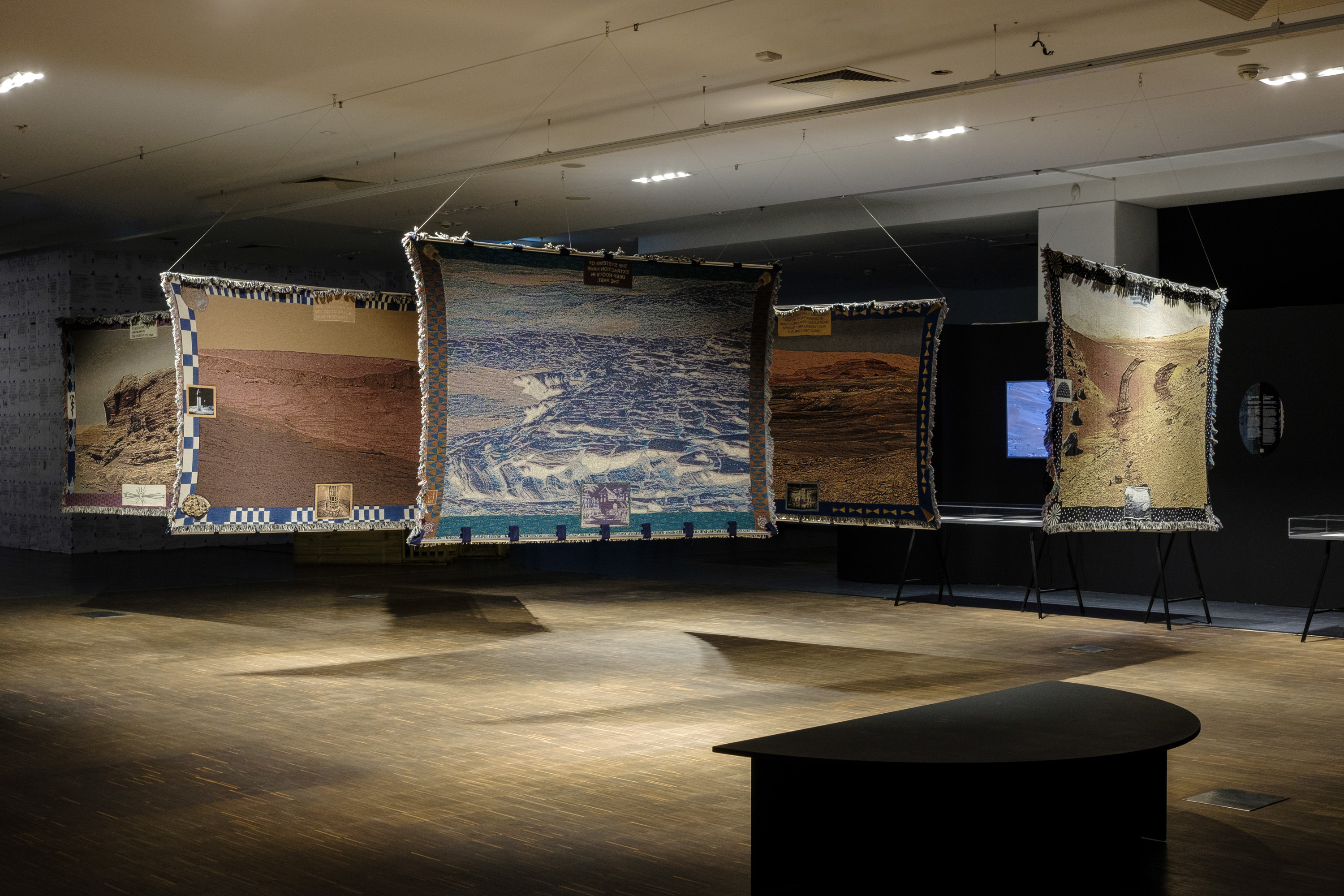The ideologues and marketers of what is referred to as ‘digital disruption’ tell us that we need to adapt to the accelerating rhythm of technological development under the pretext that contemporary societies largely accept digital technologies. The digital transformation, as they say, is ineluctable: we cannot negotiate with ‘the law’ of disruption, which will soon hit workplaces, public health, schools, universities, cities and states. Instead, what we are asked to do as individuals, organisations and societies is to show ‘resilience’ and to survive this change in the name of the so-called ‘long-life learning’ (also known as 24/7 capitalism). How could we challenge this technocratic accelerationist ideology of digital disruption and reorganise silicon technologies in order to produce some kind of a counter-disruption?
The panel was held as part of the public program of the 2nd edition of the Biennale Warszawa, entitled Seeing Stones and Spaces Beyond the Valley/Seeing Stones and Spaces Beyond the Valley.
Anne Alombert teaches philosophy at Université Paris 8 Vincennes Saint-Denis. She wrote a PhD thesis on Gilbert Simondon and Jacques Derrida. Her research focuses on the relation between knowledge and technics in the work of Gilbert Simondon, Jacques Derrida and Bernard Stiegler, and on the anthropological, political, psychic and social challenges implied by digital technologies. She participated in the conception of the contributive research program ‘Plaine Commune Territoire Apprenant Contributif’ and she wrote the book Bifurcate, with Bernard Stiegler and the Internation collective.
Gaël Giraud is an alumnus from the Ecole Normale Supérieur (Ulm) and ENSAE. He got his PhD in applied mathematics at the Ecole Polytechnique (Paris). He served 2 years in Chad as a teacher in mathematics and physics in a Jesuit high school. There, he founded a center for street children (still running today). He is a senior researcher at the CNRS in economics, has published about 30 papers in peer-reviewed journals, 4 books, and supervised around 20 PhD students. In 1999-2004, he worked as a quantitative engineer and scientific advisor for investment banks . In 2004 he entered the Society of Jesus. In 2009, he was nominated best young French economist (by Le Monde). In 2013 he was ordained as a priest. In 2015, he founded and directed the Energy and Prosperity Chair (ENS, X, ENSAE). From 2015 to 2019, he served as Chief economist and executive director of the French Development Agency (AFD). Since 2017, he has been a permanent fellow at the Nantes Institute for Advanced Studies and, since 2018, an invited professor at Stellenbosch university in South Africa. Since 2020, he also holds a PhD in theology and has been appointed as research professor at Georgetown University, founding director of the Georgetown Environmental Justice Program.
Michał Krzykawski, university’s professor at the Faculty of Humanities of the University of Silesia in Katowice, where he heads the Centre for Critical Technology Studies. He has extensively published in the field of contemporary French philosophy, philosophy of technology and social theory. Recently published works: Bifurcate. “There is no Alternative” (edited by Bernard Stiegler with the Internation Collective, Paris 2020, London 2021) and (in Polish) The Economy and Entropy. Overcoming the Polycrisis (co-edited with Jerzy Hausner, Warszawa 2023). Member of the Council of the National Programme for the Development of Humanities, co-founder of the Pracownia Współtwórcza Foundation wspoltworcza.org
Daniel Ross obtained his doctorate from Monash University in 2002. He is the author of Violent Democracy (Cambridge University Press, 2004) and Psychopolitical Anaphylaxis: Steps Towards a Metacosmics (Open Humanities Press, 2021). He is also the co-director with David Barison of the feature documentary The Ister which premiered at the Rotterdam International Film Festival in 2004, and which won awards in Montreal and Marseille. Through that film, he met the French philosopher Bernard Stiegler, and has subsequently published eleven volumes of translation of Stiegler’s work, most recently The Age of Disruption: Technology and Madness in Computational Capitalism (Polity Press, 2019) and Nanjing Lectures 2016–2019 (Open Humanities Press, 2020), along with the collective volume by Stiegler and the Internation Collective entitled Bifurcate: ‘There Is No Alternative’ (Open Humanities Press, 2021).
